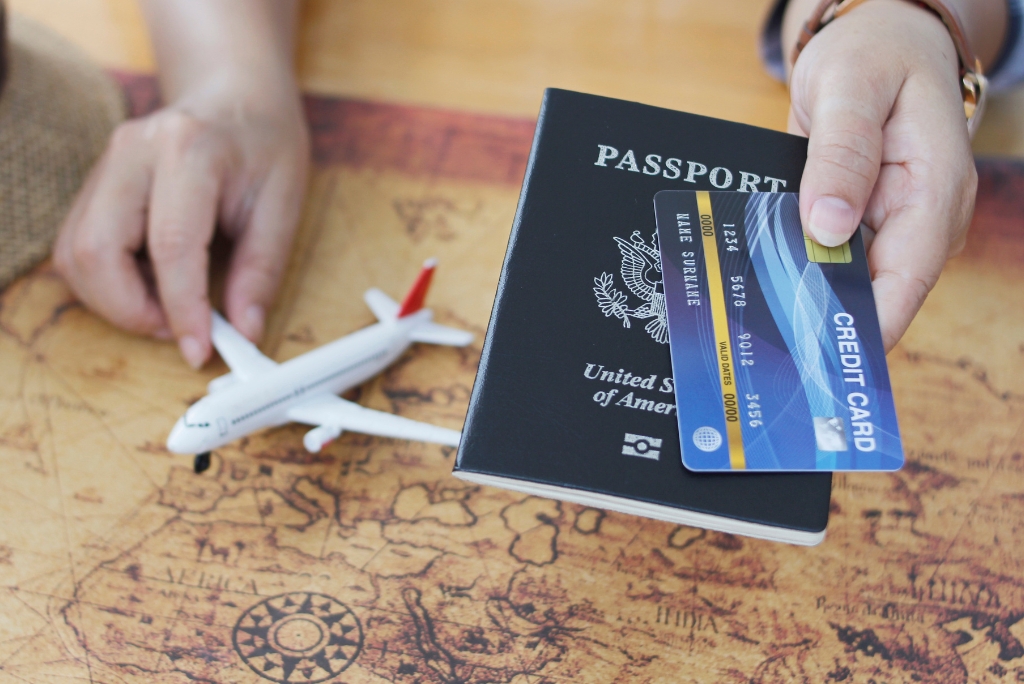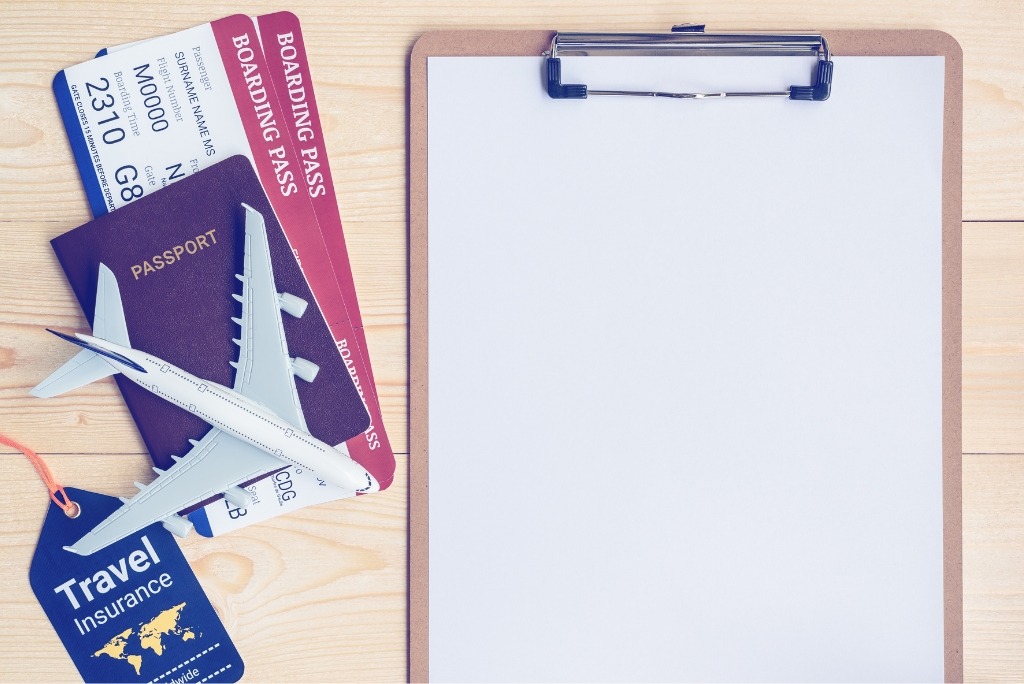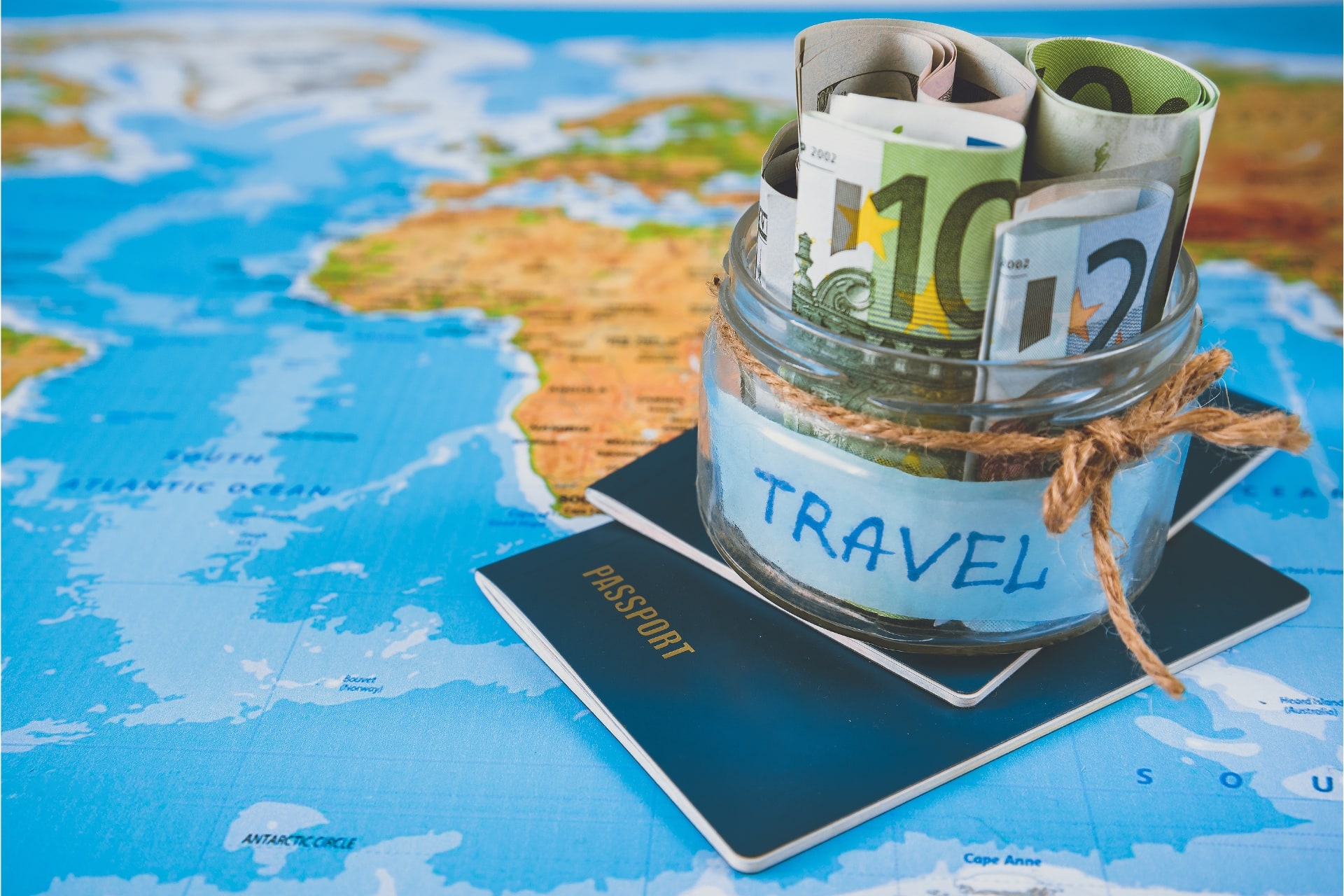Have you ever looked at travel bloggers and thought, how do they afford to travel so much? Taking a vacation can be a considerable expense, so how do they travel the world without racking up debt?
The truth is, it doesn’t have to cost a fortune to see the world, and whether you’re planning a round-the-world trip or a dream vacation to your favorite country, there are ways to save and plan ahead.
We’ve asked seven finance experts to give us their top tips on how to budget while traveling so you can make the most out of your trip.
1. Plan Large Travel Expenses First

Most of your travel budget will go on transport and accommodations, so plan these first to figure out how much travel money you have left to work with.
“If you’ve got some flexibility around the destination, use Skyscanner to find the cheapest flights from your nearest airports. They usually have some great deals, and you can compare prices for different dates.” – Enoch Omololu from Savvy New Canadians
Myth busted: The big providers aren’t tracking your phone and bumping up prices the more you search, and using incognito mode on your phone or clearing your cookies doesn’t help you find better flight prices. The truth is that flight prices change constantly, so you need to research to find a great deal.
2. Boost Your Travel Budget With Passive Income

Unless you have a remote job, it’s tough to earn a reliable living while traveling, and who wants to spend hours on their laptop working while exploring the world?
Instead, consider setting up passive income streams to support yourself while traveling. This will make budgeting on the road easier and give you extra cash to spend on experiences.
“If you own a property, you could rent it out while you travel to give yourself a reliable monthly income. But if you don’t, you could also look into passive business models that allow you to do less work while traveling.” – Tim Schmidt from Cayman Financial Review
The less involvement you have in the business, the easier it is to sustain when traveling. Look into dropshipping, POD, and other hands-off business models that can bolster your budget while traveling.
3. Work Out a Per-Day Travel Budget

Your travel budget should be flexible and include an emergency fund should the worst happen. But you do need a per-day budget to help you avoid overspending while traveling.
“Work out how much you have in total to spend on your trip. Next, take away the money you need to spend on essentials like transport, accommodation, insurance, and vaccinations. What you have left can be divided by the number of days you’ll be traveling to give you a per-day maximum budget.” – Alastair Hazell from The Calculator Site
Without knowing how much you have to spend each day, it’s incredibly easy to overspend while you’re traveling. Plus, if you do need to overspend one day, you’ll know to cut back the next day to give yourself plenty of cash to live on throughout the trip.
4. Plan Travel Expenses In Advance

From hotels and restaurants to transfers and excursions, the more you can plan in advance, the further your travel budget will go.
“No matter where you go in the world, there are hundreds of options for hotels, flights, trips, and dining, so do your research in advance. You might be able to find great deals, upgrades, and offers, and you’ll make sure you get the most out of your trip.” – Andrew Gosselin from Money Inc
There are windows for booking vacations where you’ll save the most money. For example, research shows that the best time to book an airline flight is 46 to 164 days in advance, during which time they are 5% cheaper.
5. Use a Travel Credit Card (Responsibly)

Travel credit cards can be difficult to get your hands on, but they come with some fantastic benefits if you qualify. From complimentary checked baggage and access to airport lounges to bonus points on travel spending, they can make budgeting while traveling much easier.
“Going cashless while traveling is the best option. You don’t need to worry about losing your cash, you’ll always have access to funds in emergencies, and you can earn bonuses while you’re away. Just make sure to avoid any cards with hefty fees.” – Branson Knowles from Top Mobile Banks
Take a look online for the best travel credit card offers, specifically those for frequent travelers if you plan on being away a lot. Many have welcome bonuses, like air miles or cashback for booking flights, that can help make your first trip much more affordable.
6. Don’t Forget to Save

If you plan on traveling for months at a time, don’t forget to stick to your long-term financial goals. The last thing you want is your trip of a lifetime to leave you in debt and worried about your retirement, so think about saving and investing while you’re on the road.
“Having savvy investments in place is the perfect way to stay comfortable while you’re traveling. You can enjoy your vacation safe in the knowledge that your investments are working for you and keeping your retirement secure.” – Leo Smigel from Analyzing Alpha
If you want to travel full-time, commit to putting a portion of your earnings into savings accounts or investments. It’s never fun to put money away when you have exciting travel opportunities in front of you, but your future self will thank you!
7. Plan On Paper

Even the best-laid plans tend to get side-tracked when you don’t have them written down. While traveling, keep a physical track of your expenses, budget, and income to stay on track easily.
“Budget planners are an effective tool for keeping your finances on track, especially when you’re traveling. If you’re away long-term, commit to going over your finances at the end of each week and using that data to plan the next one.” – Jennifer Kropf from Wealthy Woman Finance
Even if you’re sure you have your budget straight in your head, keeping track of your outgoings on paper will stop overspending and make your entire trip far less stressful.
Enjoy Your Travels!
Whether you want to backpack across South America or explore Europe’s capital cities, budgeting while you travel is essential. By implementing the expert strategies in this guide, you can make your travel budget stretch further, feel secure throughout your trip, and come home safe knowing you’re not in debt.

